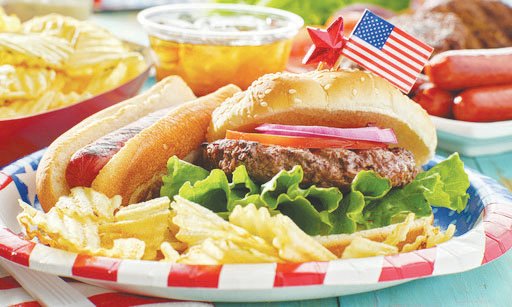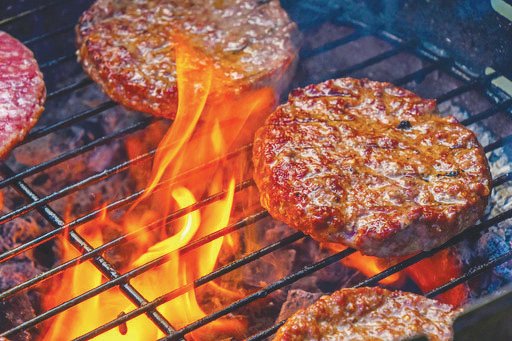Don’t let food poisoning ruin your holiday BBQ cookout
CLAY COUNTY – Whether you’re hosting or attending a barbecue four the Fourth of July, avoid bringing foodborne illness to the party, said a University of Florida food safety …
This item is available in full to subscribers.
Attention subscribers
To continue reading, you will need to either log in to your subscriber account, below, or purchase a new subscription.
Please log in to continueDon't have an ID?Print subscribersIf you're a print subscriber, but do not yet have an online account, click here to create one. Non-subscribersClick here to see your options for subscribing. Single day passYou also have the option of purchasing 24 hours of access, for $1.00. Click here to purchase a single day pass. |
Don’t let food poisoning ruin your holiday BBQ cookout
CLAY COUNTY – Whether you’re hosting or attending a barbecue four the Fourth of July, avoid bringing foodborne illness to the party, said a University of Florida food safety expert.
“You might have a good system for keeping food safe when you’re cooking at home. But when it comes to preparing and eating food outdoors, there are other risks,” said Keith Schneider, a professor of food science and human nutrition at the UF Institute of Food and Agricultural Sciences.
To prevent food poisoning at your next barbeque, Schneider answers some common food safety questions.
Is it OK to store raw meat in the same cooler as potato salad?
“The number one likely cause of foodborne illness at a barbeque is contact between raw meats and ready-to-eat foods, such as a potato salad,” Schneider said. “That’s why it’s important to keep those things separate and prevent cross-contamination. Storing raw meat in a separate cooler is one way to do that.”
Speaking of that potato salad, is mayonnaise what makes it go bad?
“Actually, bacteria don’t grow very well in mayonnaise on its own. But when you introduce other things to that mayo, such as potatoes, eggs or macaroni, you’re adding water to the mix, making the mayo less acidic and creating a better environment for bacteria,” Schneider said.
This is why it’s important to keep foods made with mayo cold because the lower temperature prevents the growth of germs, he said.
I dropped a burger bun on the ground, but I picked it up right away. Five-second rule, right?
“There is no such thing as the five-second rule,” Schneider said. “As soon as food comes in contact with germs, it’s contaminated. At that point, it’s best to use a new bun.”
Is this chicken done?
“When it comes to poultry, you can’t go by color. Instead, use a meat thermometer to confirm that the thickest part of the chicken has reached 165 degrees Fahrenheit. That’s the temperature at which harmful germs are killed,” Schneider said.
Are those communal charcoal grills at parks and beaches safe to use?
“Generally, yes. That’s because those grills will get very hot. If you preheat them, that will kill any germs that were present,” Schneider said. “Still, cleaning them is a good idea, not necessarily for safety, but who wants week-old charred cheese on their freshly cooked burger?”
Do I need to use different tongs or spatulas for cooked and
uncooked meat?
“This is another common mistake: using the same tongs or spatula for raw and cooked meat. This just contaminates cooked meat with germs that were on the uncooked meat,” Schneider said. “However, washing those tools after they contact raw meat might not be practical when you’re cooking outdoors. Instead, just bring two sets to your barbeque – one for raw meat, one for cooked.”
Is hand sanitizer just as good as washing your hands?
“Using hand sanitizer or washing your hands with soap and water will reduce the risk of contaminating food,” Schneider said. “If you don’t have access to soap and water when you’re cooking outdoors, hand sanitizer is a good choice.”
How long can I leave the leftovers out?
“The general recommendation is to refrigerate leftovers within two hours. However, if it’s a hot day and food is left out outside, that window shrinks to about an hour,” Schneider said.










